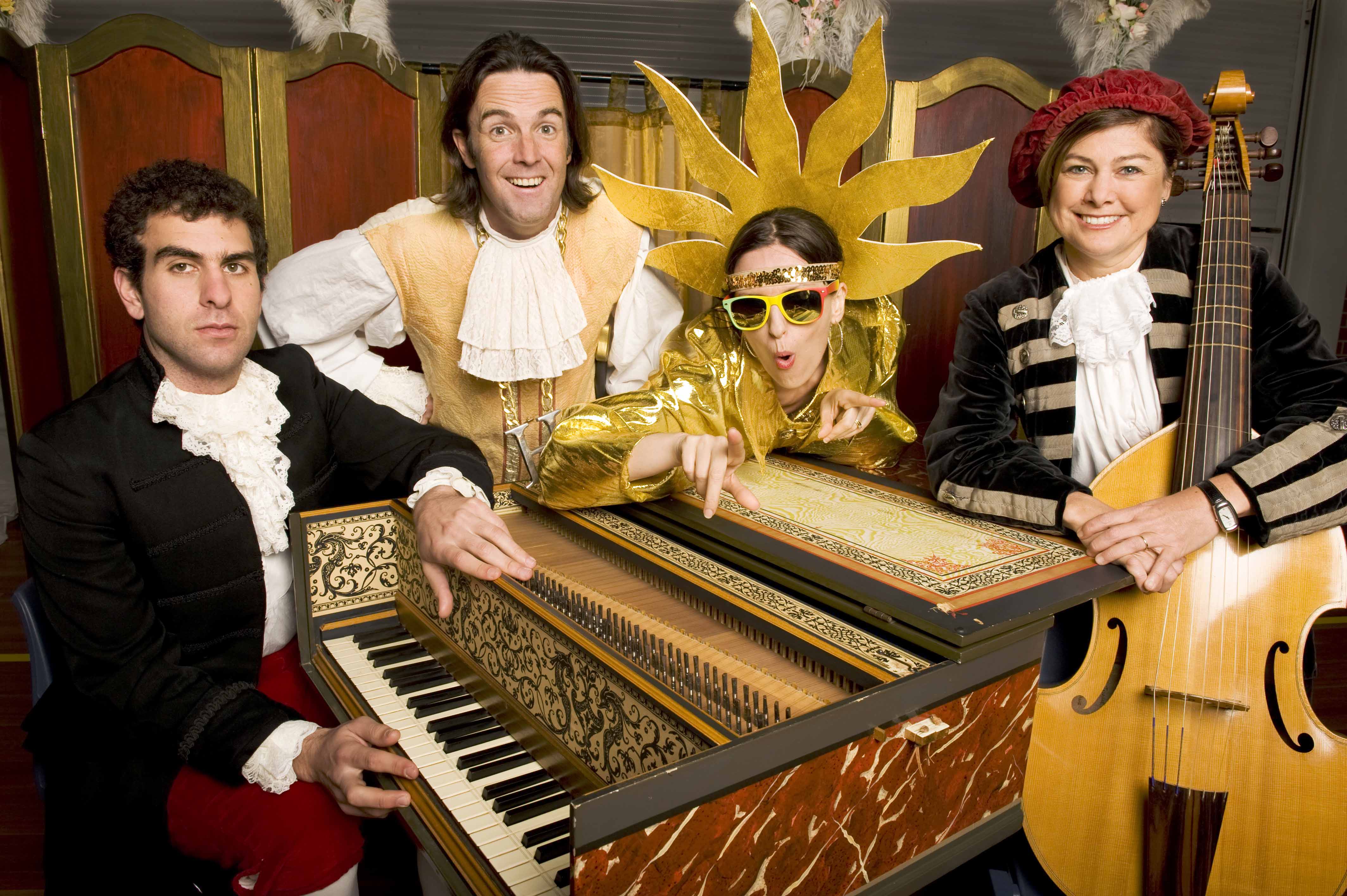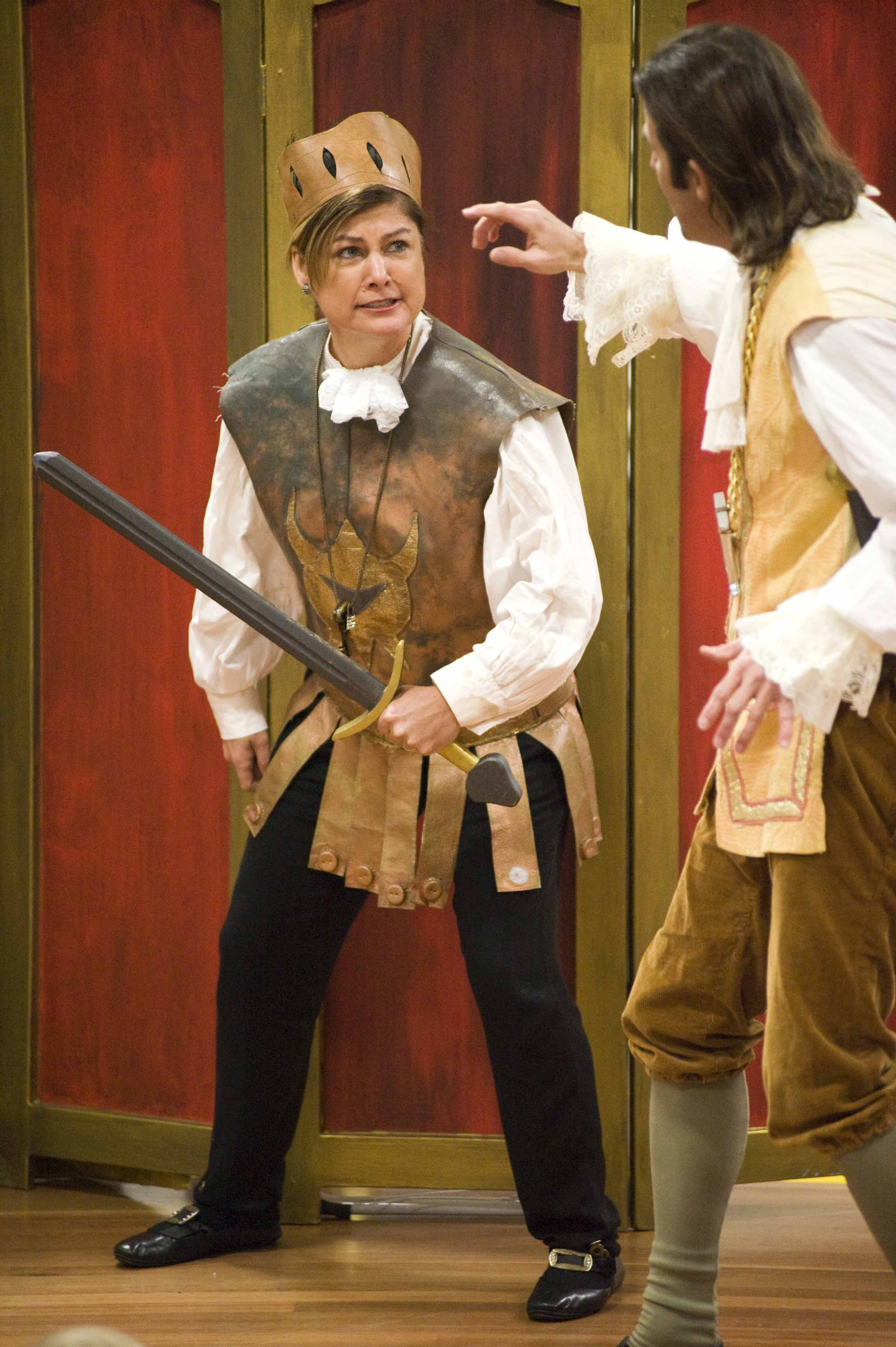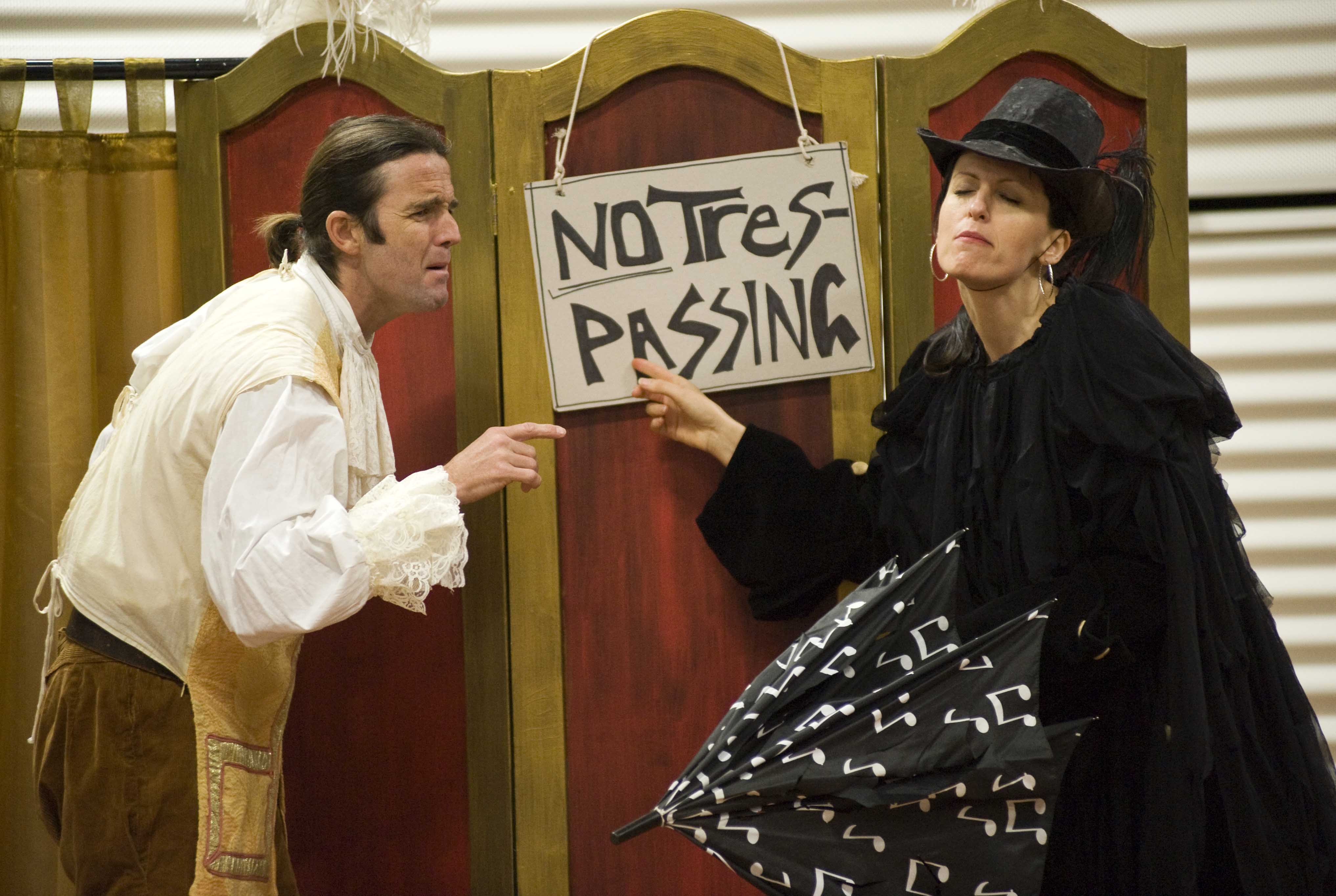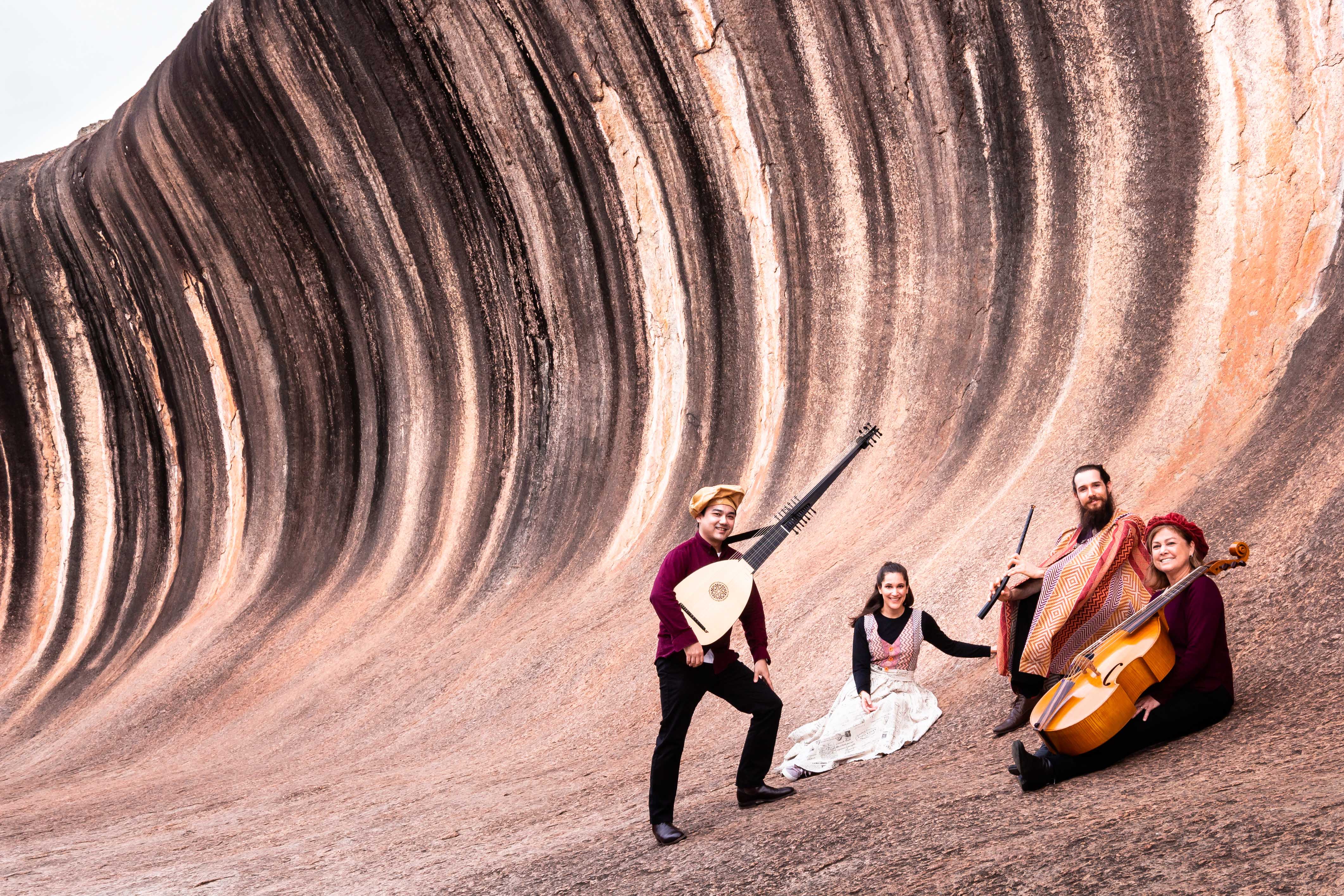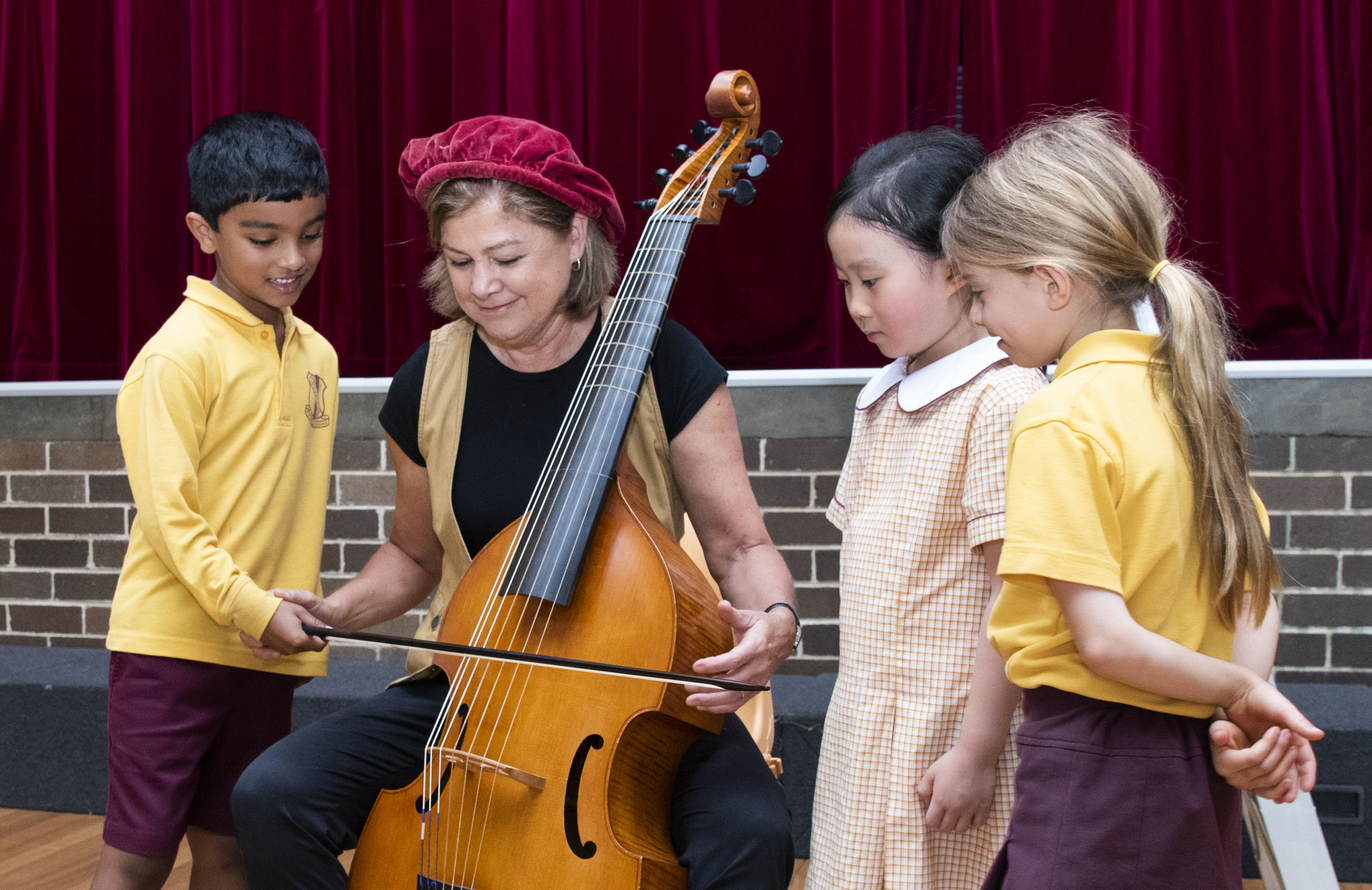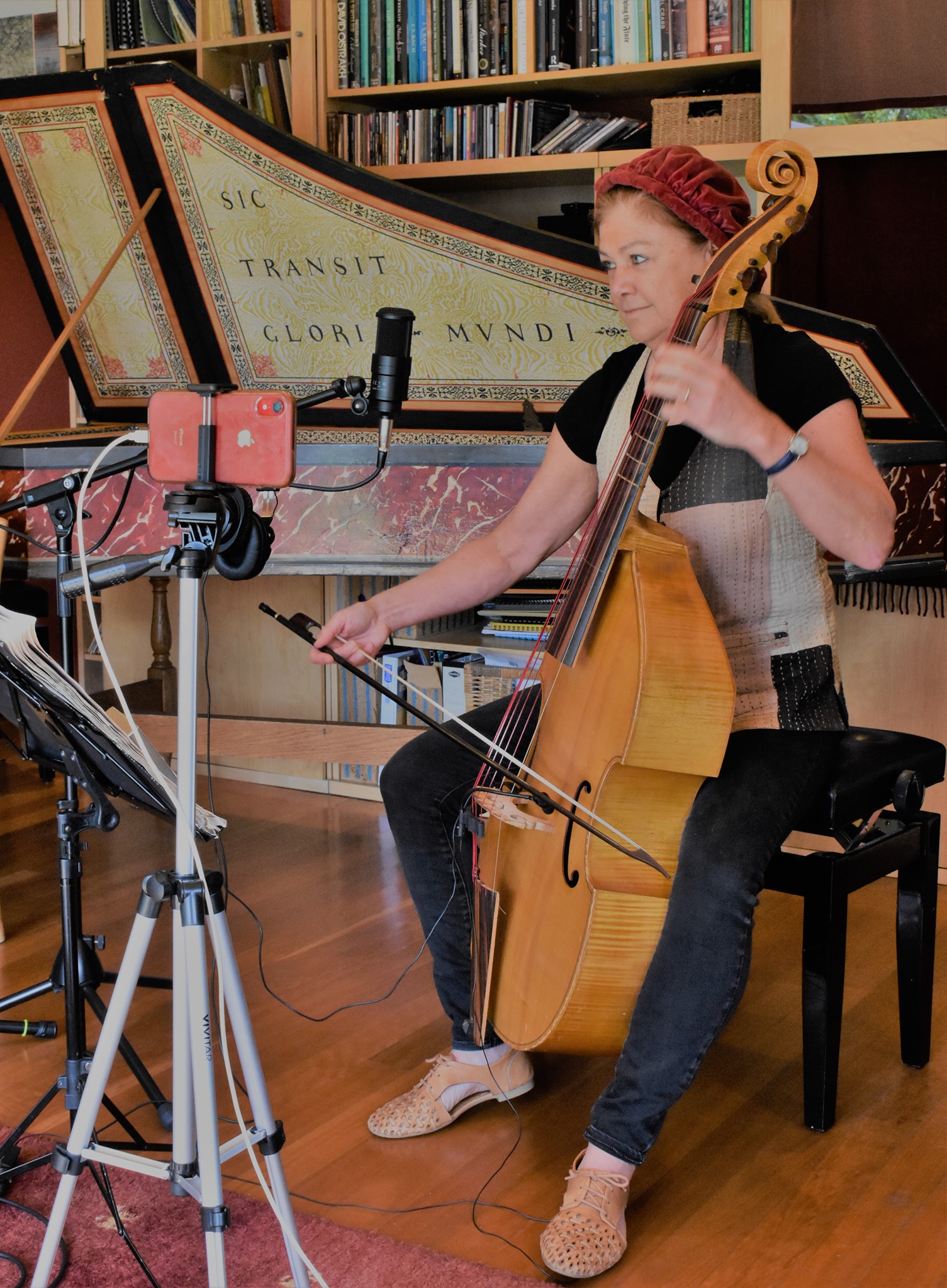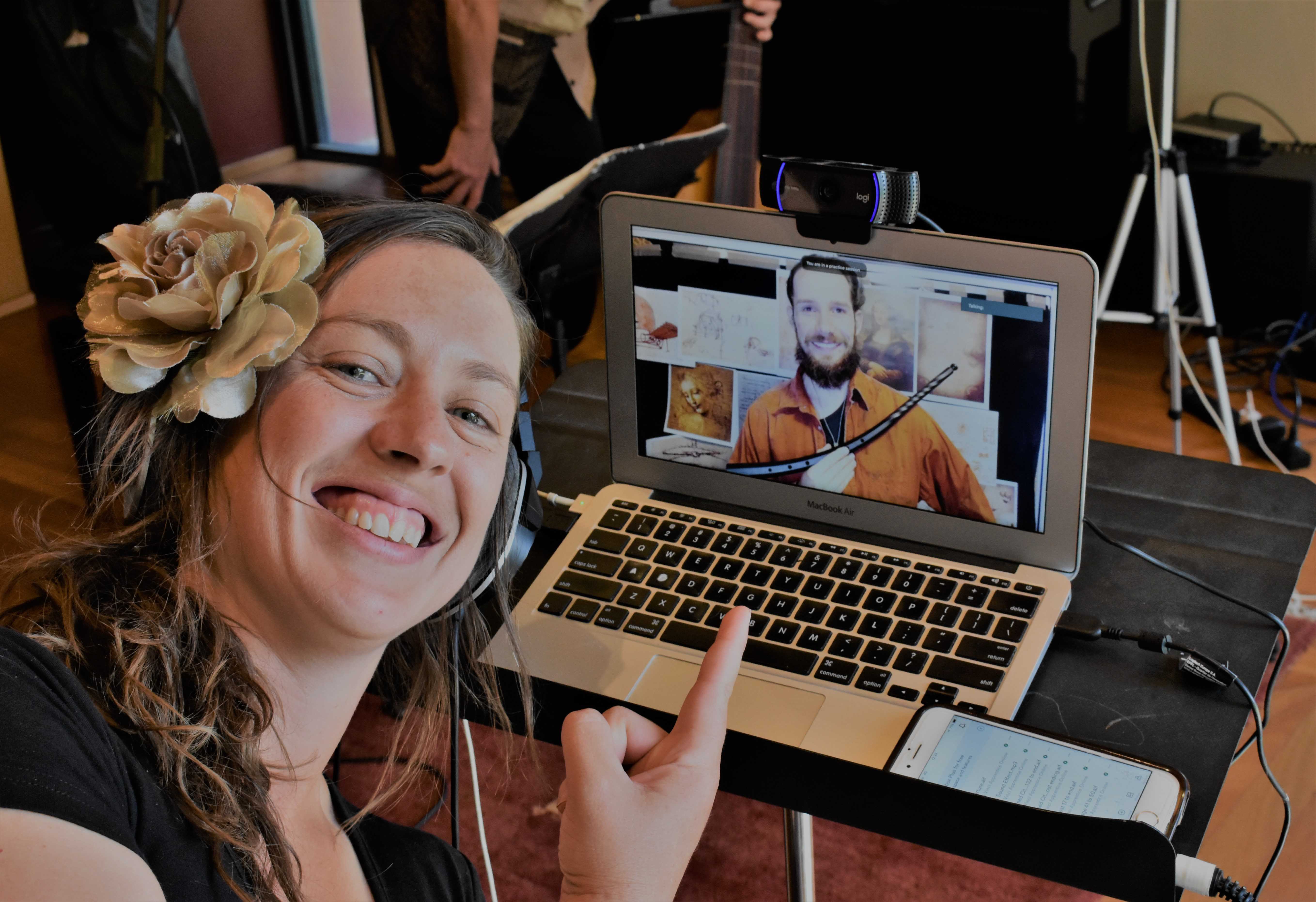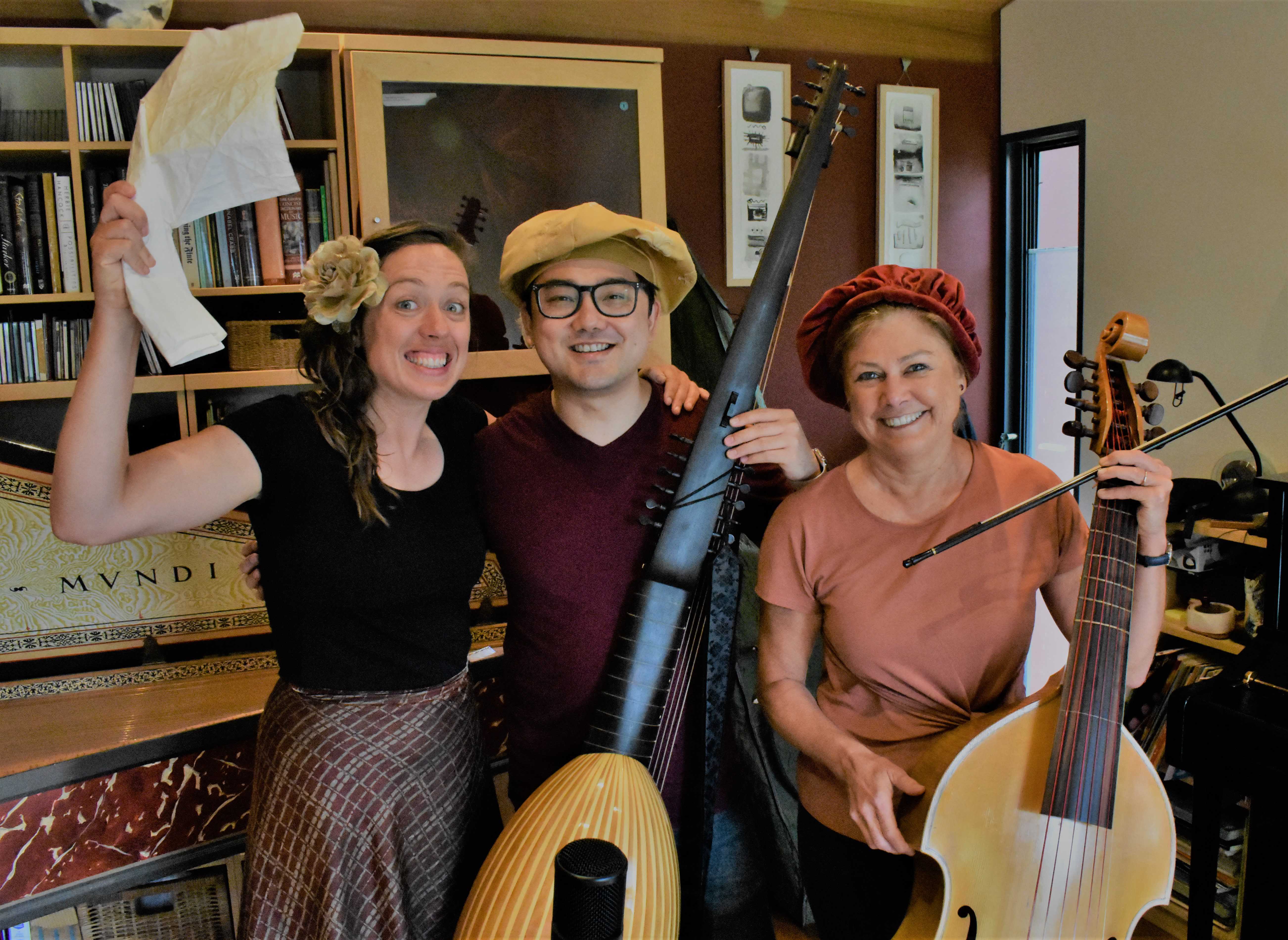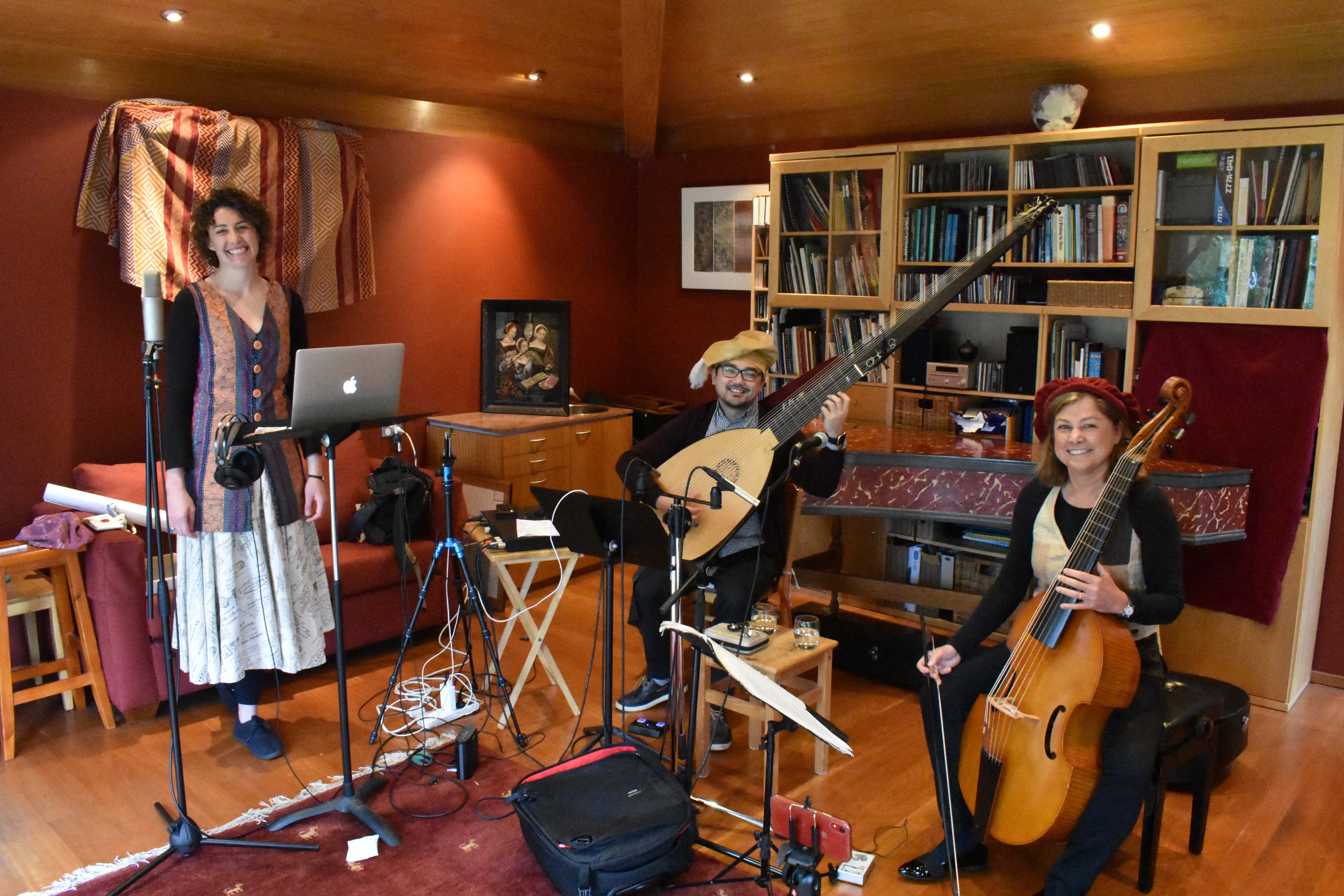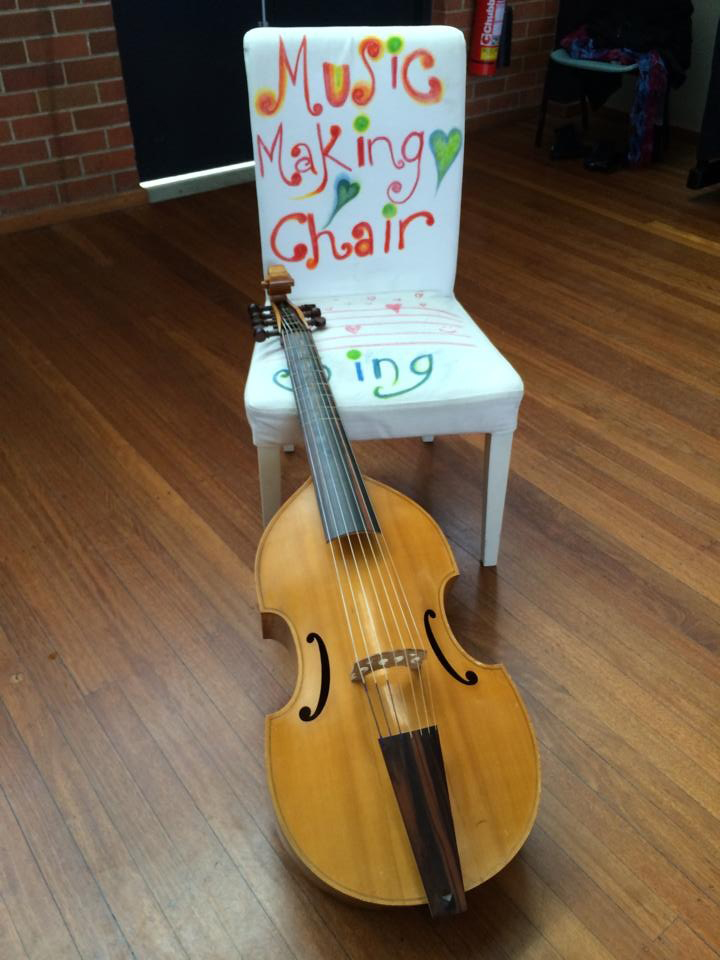We are thrilled to launch a new interview series that takes a closer look at the musicians behind our Musica Viva In Schools program and their musical journey. In this first installment we speak with Jenny Eriksson from Da Vinci's Apprentice, who has worked with Musica Viva for over 30-years.
In this interview, Jenny details how she was introduced to our education program in 1989, she recaps her first touring group and how it developed over the years, she looks back at some of her favourite and funniest memories performing in schools, and touches on her genuine passion for music education.
Jenny, can you tell us when you were first introduced to Musica Viva? How did your paths cross?
I was introduced to Musica Viva In Schools in 1989 by Paul Dyer, the current Artistic director of the Brandenburg Orchestra. I had just finished 3 years of viola da gamba study in the Netherlands and Paul was setting up a new Musica Viva In Schools group Sounds Baroque. Paul had also studied in Holland, and we overlapped in Amsterdam for a few months when I first arrived.
Tell us about your very first Musica Viva in Schools tour. What was the performance about, what was it like taking your concert on the road, how was it received by students and teachers?
My first MVIS show was based around Purcell’s music from Dido and Aeneas. (Soprano, recorder/baroque flute, viola da gamba and harpsichord)
I vividly remember our first country tour. The first Toyota people mover had just come onto the market. We packed the harpsichord, viola da gamba plus 4 people and luggage into the van. I still don’t know how we managed this! Our first stop was Lightening Ridge, a 10-hour drive.
Students and teachers in this region were mesmerised by the music and the Baroque, instruments - especially the Harpsichord.
How many groups have you been a part of over the years for MVIS? Can you run me through each ensemble and what the concert experience was like?
The group Sounds Baroque went for 28 years! But within this time period we had 4 different shows:
1. Dido and Aeneas
2. King Arthur was based on a work by Henry Purcell was the first of our productions where we told a story – in this case, through a narrator. Our format changed to two singers, soprano and baritone, viola da gamba and harpsichord. This format remained for the rest of Sounds Baroque’s life.
3. Prospero’s Island was a children’s opera built around The Tempest composed by English baroque composer, Matthew Locke. After 14 years we made a major directional change. I could see the need to integrate the show. I wanted the music to speak first rather than us explaining the music. I came up with the idea of a mini opera which would still involve instruments but would have the added attraction of drama. Having a story line in in our performances really helped keep the students engaged.
In each of our first three shows the group wrote the scripts, arranged the music, helped make and paint the sets, and I made all the costumes.
4. Hercules a children’s Opera drawing on Alceste, by Jean-Baptiste Lully, was Sounds Baroque’s final production and probably our best show. We had a professional director and costume designer to get the production elements going. The students loved this story but also there were so many clever musical activities embedded in the performance which gave them the opportunity to really be engaged. This included singing a round, a modern-day Rap, and 17th century dance. I must admit one of my favourite moments in this show was when I got a chance to act and be part of a sword fight. My sword fighting skills were surprisingly good at the end of 6 years!
When was Da Vinci's Apprentice, your current ensemble created? What was the inspiration behind it?
Da Vinci’s Apprentice was created 4 years ago. After presenting several baroque operas, I wanted to develop an original Australian work. Sally Greenaway, the show’s composer, came up with the idea of basing the story around the inventions of Leonard da Vinci. Da Vinci lived at the time our instruments – viola da gamba, theorbo, and cornetto - were emerging. He was of course a musician himself!
Having worked with Musica Viva in Schools for many years now, what has it been like seeing the program develop? From its early days, to the program it is today?
There have been many changes, especially over the last 2 years with the pandemic. I would never have ever dreamt we would be broadcasting concerts from separate rooms into the classroom. I have appreciated the resources Musica Viva have put into to the production of new shows over the last 4 years. In the early days we were pretty much left to ourselves to create new productions. MVIS is now giving concerts in every corner of Australia, so I have watched the program grow enormously.
What is/are some of the best experiences with students you've had over the years? Do any specific memories or moments stand out for you that you can detail for us?
When we were at Wagga juvenile detention centre, there was a moment in the show Hercules when the singer asks, “where am I?” On this occasion, a boy yelled back, “A juvenile detention centre!” We suddenly realised for the first time that our Hercules production was all around being imprisoned – and getting out! I mean, I even had a line where I called myself the chief gaoler. But the boys were totally engaged, which is incredible given that a baroque opera is not exactly hip. A teacher commented in the evaluation of that day: “We welcome the courage your organisation has in delivering inside the razor wire - the performers were wonderful.” So, this was a moment I will never forget and a good reminder not to think we know what young people will and won’t enjoy.
If you can think of one, what is the funniest or most random question you've received from a student over your time performing for MVIS?
Two come to mind. At one particular school a very confident boy got up on stage and danced as part of our performance. When he finished, he turned and asked us, “Did you like my strut?” We almost lost it!
At another school, Hercules was singing a sad song about having losing his girlfriend, Hermione. Suddenly a child called out, “Stop singing and go and get her!” (Great advice!)
Having worked in music education for so long now, can you tell me what it means to you and why it is so important?
The question I have continually asked myself over the last 30 years is this: how far am I prepared to dig, intellectually, personally, and emotionally, to really find the soul of my music so I can have a profound effect on my young audience? You have to draw the best out of yourself. Kids, like adults, know if you are just turning up. In fact I think sometimes kids are harder critics than adults
From my very first tour I saw the importance of taking music into schools. I experienced how a performance could enrich the lives of not only the students and the teachers but the communities we visited. It is sobering to think that our school concerts might be the only concerts some children ever hear.


